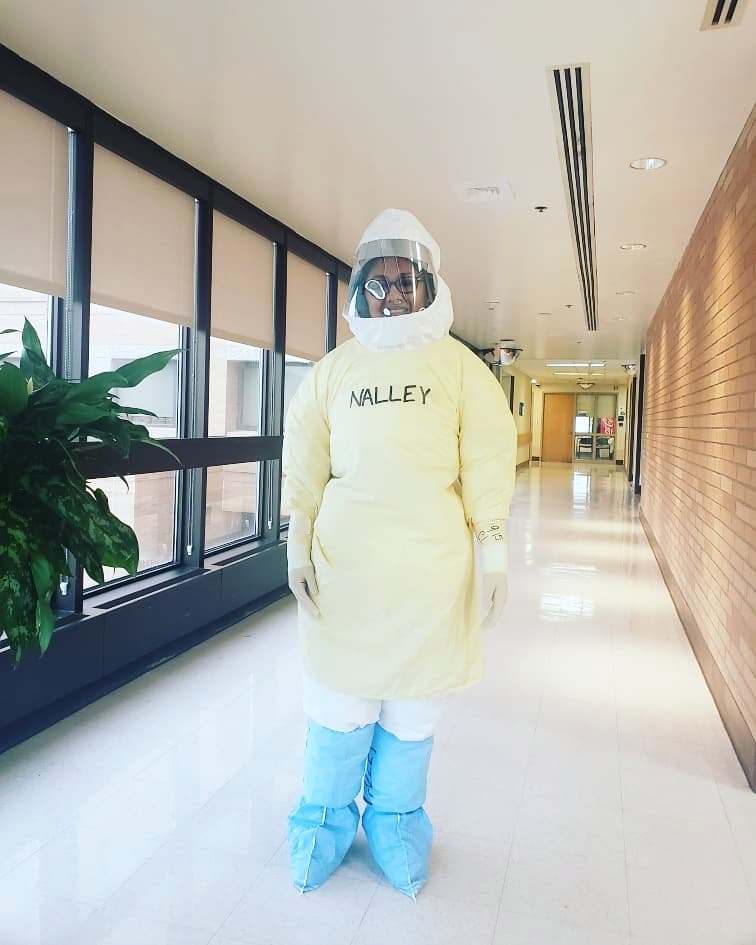Face to face, day by day in the face of the pandemic, asks to value more the hugs and kisses to the loved ones
Of her own free will, Nallely Montesinos Martínez, a nurse assistant, beneficiary of the Deferred Action for Childhood Arrivals (DACA) program, decided to work in the hospital area where patients with coronavirus are.
“They gave us all the option to choose; and I know that it is dangerous, and that many people out of fear do not want to care for these patients. I myself am afraid, but I chose the medical field as a profession, knowing that we are exposed to viruses and all kinds of infections"
Although he admits that it never crossed his mind, that one day, there would be a global pandemic like COVID-19; and that it would be up to her to be on the front line of medical personnel in battle as an essential worker.
"You must have a vocation to get into this," he says.
When the number of cases skyrocketed, she did not hesitate to be part of the group of people she helps, even though that meant putting herself at risk, and her own family.
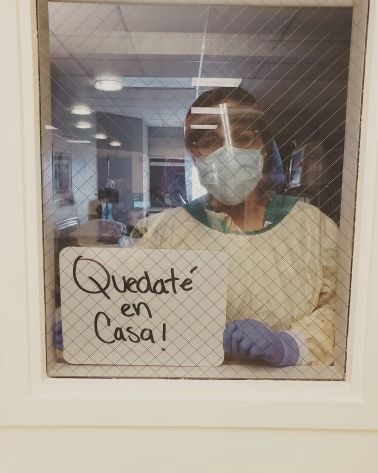
34-year-old Nallely is married and the mother of two minors, ages 11 and 9. He came to the United States at 14 years old. He was born in Mexico City, and grew up in Chicago. In 2013, he obtained the DACA that allowed him to live and work in the United States.
Five years ago she moved to the state of Kentucky, where she works in the pulmonology area of a renowned hospital, but also attends the School of Nursing.
"I don't want to stay as an assistant, I want to be a nurse," she says.
He works three days a week in daily hours that last 12 hours. "From 7 in the morning to 7:30 in the afternoon."
Since coronavirus became a national health problem in MarchHer daily routine as a nurse assistant changed.
“I arrive in my normal clothes at the hospital. That's where I put my uniform on. ”
After reviewing his assignment for the day, which includes visiting about 32 patients, it is time to put on another uniform that looks like an astronaut, to enter the area where the patients who tested positive for the coronavirus are. This second uniform prevents you from exposing yourself to the disease and spreading it.
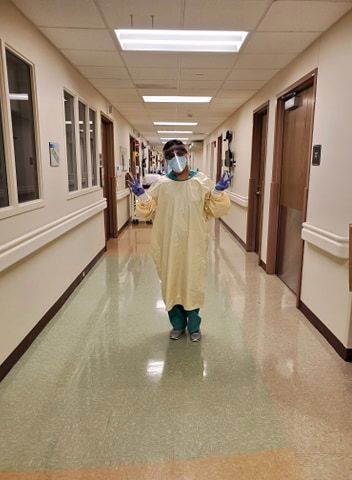
“Before doing it, we have to drink water and go to the bathroom; because once the uniform is on, it is very difficult for us to go. "
Nallely describes that the uniform for visiting the sick with the COVID-19 is not heavy, but it is made of plastic material that inflates like a balloon, and has added a machine that supplies them with oxygen.
"One ends up completely covered in sweat because we spend in that suit, four to six hours, before taking a break"
The first time you used it, you felt like you were going to have a panic attack. “I felt dizzy, nauseated and like I couldn't breathe. It was as if I was head, I was playing a trick on me. I had to relax, but the first two hours were very difficult. "
It's complicated, he observes, because sometimes their hair moves, or itches, and they can't do anything.
As if this were not enough, there are certain tasks like bending over that become very difficult. "We have to stand with our feet open to be able to do it, and watch that the hose that goes to the mask does not come off because we are running out of oxygen."
In addition to the uniform, two pairs of sterile gloves should be worn that extend to the middle of the arm.
“Every time we go to see a patient, we take off the gloves we used with the previous one to use new ones. But first you have to put disinfectant on the first gloves. "
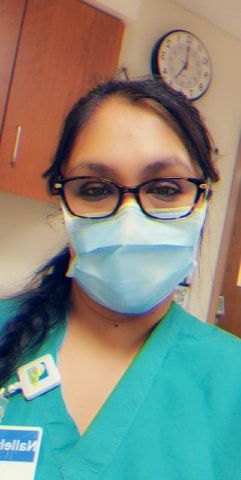
Her job as an assistant is to bring food to the COVID-19 patient, help him stand up if he needs to go to the bathroom, change the sheets, and give him personal care like brushing teeth.
"On top of their medications and checking their vital signs, they need personal care."
Because the cleaning workers are not authorized to enter those areas where the COVID-19 patients are, the assistant nurse has to clean the rooms and bathrooms. "We have to mop the floors," he says.
After four or six hours of work, they have a break to eat, hydrate and go to the bathroom.
When her day ends, Nallely goes straight to a designated area in the hospital where they help her take off her suit.
"There are people who guide us step by step to take it off."
On your way home, you must follow another protocol.
“Upon entering, I practically undress, and put all my clothes in a bag that my family already has ready for me. From there, I'm going straight to put it in the washing machine. And without touching anything, I go to the bathroom. ”
Already neat and with clean clothes, she begins her family life, although also with restrictions.
"I always walk around the house with a mask. I have not hugged my children or husband since I have been working with coronavirus patients. My husband and I sleep in separate rooms. Me in the room downstairs that has its own bathroom; and he, upstairs where the other rooms are. "
If they watch a television show together, she feels estranged from her children and her husband.
“If I go into the kitchen, they know they have to get away from me. I'm afraid of infecting them, "he admits.
Her voice cracking with emotion, she trusts that it hurts her not to be able to hug or kiss her family.
“On April 10, my son turned nine years old, and I couldn't hug him. On April 28, my husband and I were 13 years married, and we couldn't hug each other either, ”she says sadly.
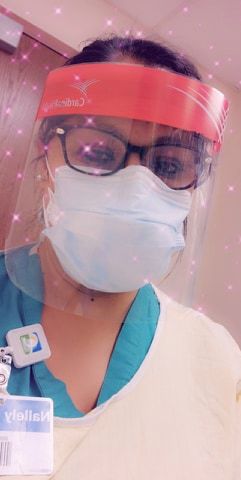
Working with patients with coronavirus, some of whom have already died, has made this health hero value life more.
"We live in a career. We never appreciate those basic little things like a hug and a kiss. Hopefully we are never forgetting this that we are going through, and we will take advantage to change and be better people with more compassion towards all humanity ”.
Nallely is trying to raise awareness among people who don't believe in the virus.
Please stay home! for the curve to flatten and get out of this soon. Don't visit your relatives! I do not visit my parents and siblings. I don't want to expose them ”.
Amid the tension generated by the possibility of getting the coronavirus, she is concerned that these days, the Supreme Court of the Nation will issue a ruling on the future of the DACA program. "I hope you touch your heart and make the right decision because we are thousands of DACA beneficiaries who are contributing to get ahead of this health crisis."
The opinion She has joined the Coalition for the Rights of Immigrants (CHIRLA) to invite everyone to open their doors to their home on Friday, May 1, International Labor Day, at 6:00 p.m. essential workers like Nallely; Or, post a club on your social networks with the hashtag #PorraDeTrabajadores.

